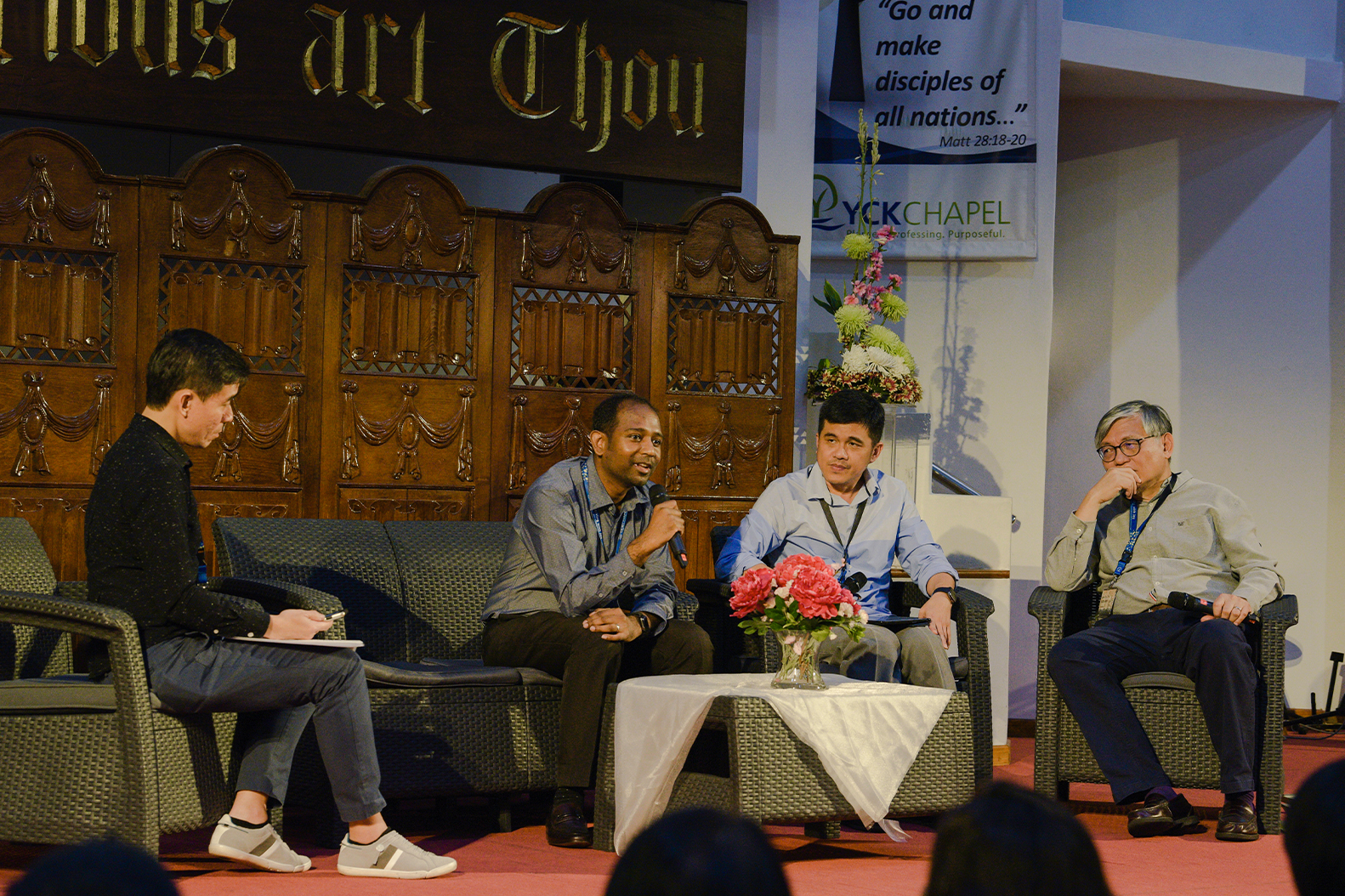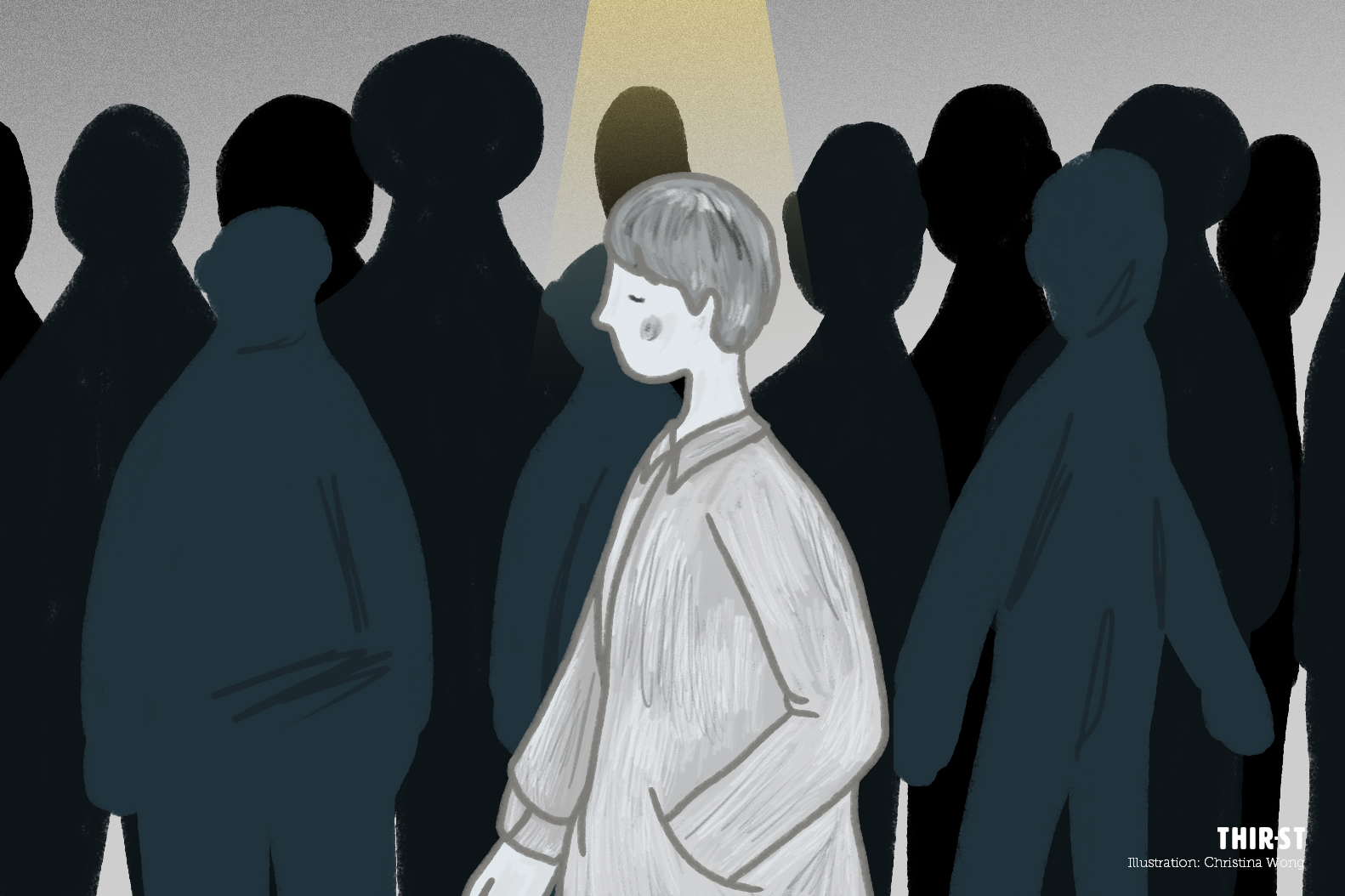“I remember that evening when my depression actually emerged in a very conscious way,” said Dr Tan Soo Inn, chairman of Graceworks, at The Church and Mental Wholeness Conference last week.
He described the moment as feeling like someone had turned his internal switches off – he had no will or heart to do anything. Even simple actions like getting into a car and driving to another place felt as though he was walking through water, going against resistance.
From that day onwards, he found that he had no energy or strength to do anything.
“I was in constant emotional pain,” Dr Tan added. “Maybe I was pushing myself for a long time and I didn’t know that it was building.”
By then, he had gone through multiple losses: One wife to cancer and another to marital breakdown. As a result, his ministry also suffered.
He contemplated suicide, but the thought of his two sons whom he was raising single-handedly kept him from acting on the idea.
So he saw a psychiatrist, who prescribed him antidepressants that helped to stabilise his brain chemistry and started him on counselling sessions once a week. He also confided in another counsellor friend and found the “talk therapy” very helpful.

It took Dr Tan more than 20 years to get to where he is today – to have a life filled with joy, friends and purpose. However, that couldn’t have happened without the Lord leading him through the valley and the help he received from a loving community.
Together with other speakers who have journeyed alongside those with mental illness, Dr Tan shares what was helpful – as well as unhelpful – during those difficult times.
THE MINISTRY OF PRESENCE
During the early days of his grieving period over his first wife, Dr Tan had a co-worker who would drive to his house every Monday. They would go for dim sum and few words would be exchanged during their meetups.
“It was his presence, you see. He didn’t take my pain away, but at least I knew I wasn’t alone. You can face some things in life if you know you’re not alone,” he recounted.
Just like how Job’s friends sat with him in his pain in silence (Job 2:13), Dr Tan said that we often underestimate the power of a genuine friend and a loving community of believers.
“You don’t need a certification to help,” he said. “Sometimes it’s just a simple ‘I don’t know why God has allowed this. I can’t give you an answer, but I’m here for you.'”
Offering advice on how to get over it may create more frustration for those who are suffering.
“Be a good and empathetic listener. The ear is better than the mouth,” said Dr Tan.
Psychiatrist Dr Raj Velloo added that, from his own experience, patients who included others in their journey tend to do better in their recovery.
He has personally witnessed how the small group members of different patients suffering from depression and schizophrenia would accompany them on their clinical visits.
“I find that when they walk with someone else, they actually do much better (than other patients who don’t have support),” Dr Velloo observed.
CREATE A SAFE PLACE FOR PEOPLE TO BRING THEIR PAIN
If we want those with mental illness to open up about their struggles, the Church has to cultivate an environment where people feel safe to be known without the fear of judgment or stigma, said Pastor Rick Toh, lead pastor of Yio Chu Kang Chapel.
Leaders should be encouraged to be vulnerable about their own brokenness and to share their own redemptive stories, regardless of whether these are about mental health.
“The Church has to educate about the theology of weakness – that it’s okay to be weak, so that the power of Christ may rest upon us,” said Pastor Toh.

But we also need to be mindful that confidentiality is important, he added.
Struggles should be kept within a small group, agreed Dr Velloo.
If details are passed on to too many people, it may create anxiety for the person with mental illness when others start approaching them to pray with them.
RECOGNISE THAT THERE IS NO “ONE SIZE FITS ALL”
“Sometimes I wish that God could snap his fingers like Thanos (in Avengers) and all mental illness would be gone,” said Dr Tan.
We may want healing to happen at this moment, but God didn’t promise complete healing now, he added. Revelation 21:1-5 talks about a time when there will be no more tears, no more death, no more pain.
“God’s timetable is different,” he said. Till then, we’re on a journey together.

“Christians and Christians in the profession should have a holistic approach to (mental illness). Human beings are complicated. Life is complicated; there’s no one thing that will solve it,” explained Dr Tan.
Sometimes we end up viewing people as machines and try to fit them into the same mould. But what we need is a “human approach” to healing.
Listen to each individual and discern lovingly based on their situation, he added.
Discernment also comes when people from different disciplines work together.
“The psychiatrist would have a certain approach; the one involved in deliverance ministry would have a certain approach,” said Dr Tan.
“I pray that as Christians from different disciplines, there must be some humility, starting with a Biblical vision of what human beings are.”
GO BACK TO OUR CONVICTIONS
At the end of the day, it all falls back to our conviction, “believing that everyone is equally important because they are all made in God’s image”, Dr Tan pointed out.
If we believe this, how do we translate that into how we treat different types of broken people? How do we then love and help to disciple those who are struggling?
It begins with repentance for the fact that the Church has ignored this group for so long – but it shouldn’t stop there.
Dr Tan said: “We’re on this caravan towards Revelation 21. Along the way, different people need different kinds of help. So for people who meet with mental illness issues, (let’s) journey with them as best as we can.”
- Do you think your church is doing a good job in supporting those with mental illness? Why?
- Do you know anyone who is struggling with mental illness? How can you create a safe and authentic community for them?
- What are some ways you can be more empathetic towards those who are struggling?









